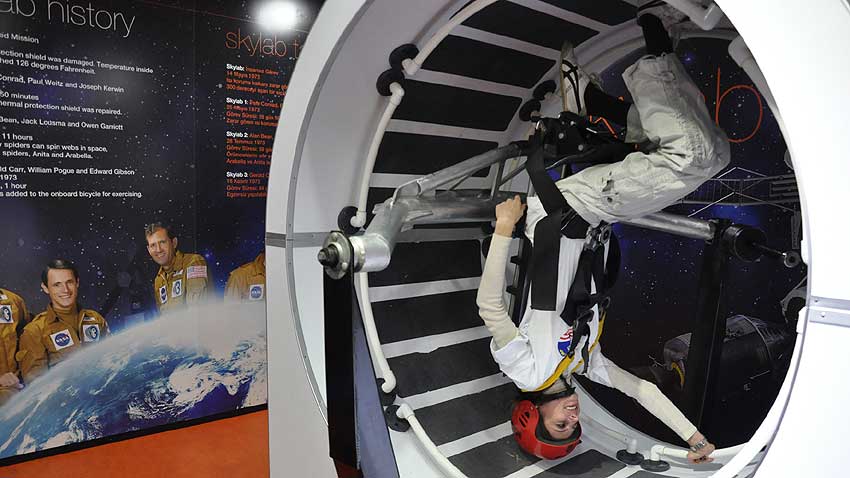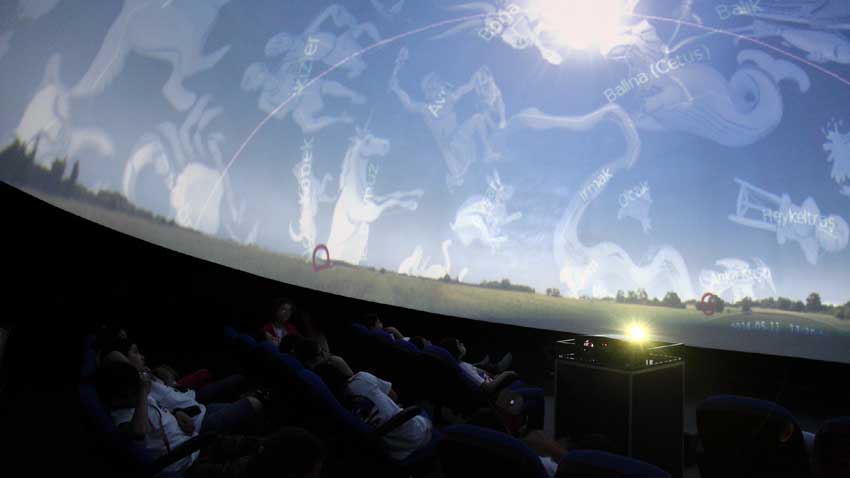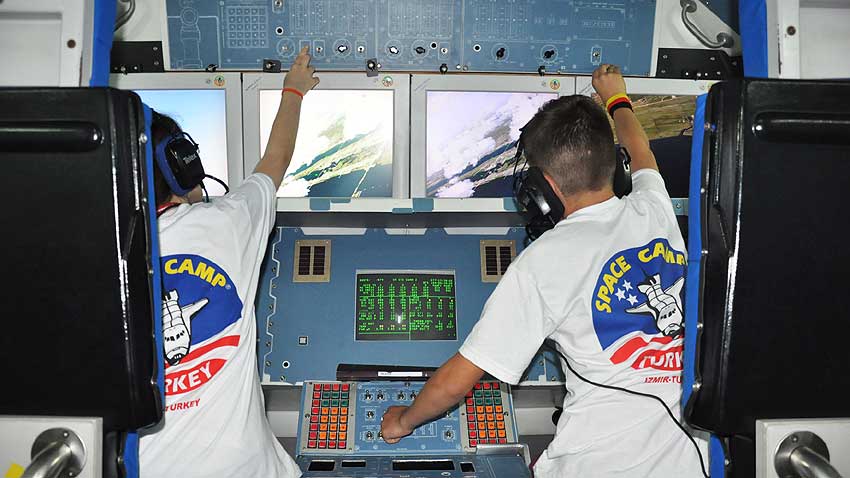All children have dreams. Some of them come true, others remain as wonderful childhood memories. The kids who dream of becoming spacemen have now the opportunity to fulfill their dreams. Each year children aged between 9 and 15 are trained for astronauts at the Space Camp in the Turkish city of Izmir. They are taught to fly a space shuttle with the help of simulators provided by NASA. There are a total of three space camps worldwide, but the Bulgarian fans of space are trained in the nearest camp in Bulgaria's southern neighbor.
The training at the Space Camp in Izmir lasts for one whole week. The purpose of the training is to provoke the interest of the Bulgarian children towards science, knowledge and the objects that can be seen in space. Each child also has the opportunity to meet many people of different nationalities and gain knowledge of little known cultures. The trainings are held only in English.

The camp base has at its disposal a series of flight simulators, training grounds and other facilities which reproduce space conditions. The camp is also equipped with bedrooms, recreation rooms and a canteen.
Ilya Zhdanov is a ten-year-old Bulgarian pupil. He shared his impressions about the space camp with Radio Bulgaria:
“I have already started to draft space ships. Basically, you have to combine things existing at present with something that will be invented in the future. Space is little explored. We even constructed rockets. We flew these rockets, but my rocket crashed somewhere. It was constructed well, but it flew too far.”

Each Bulgarian youngster aged between 9 and 15 can apply at the national partner of the space camp in Bulgaria -the Center for Creative Training. The interest towards the programme is huge and only a limited number of applicants manage to join the camp in Turkey. Children write essays on space-related topics during the exams.
 Marina Kamenova is coordinator of the Space Camp program for Bulgaria at the Center for Creative Training. She has some details about the Space Camp and its facilities:
Marina Kamenova is coordinator of the Space Camp program for Bulgaria at the Center for Creative Training. She has some details about the Space Camp and its facilities:
“Children study chemistry, biology, hydroponics and physics. There are a total of 11 flight simulators, which are the same as the ones used by the real astronauts. Children can feel what astronauts feel before their flight. All training facilities are used under the strict control of trained experts. One of the flight simulators spins in all directions, so that children can feel what would be like if the shuttle enters the atmosphere and spacemen lose control over it. It shows them how real astronauts deal with the situations. There is a simulator which reproduces the Moon walk. Gravity is six times lower on the Moon, as compared to the gravity on Earth and the simulator reproduces this phenomenon. Other facilities show what would happen, if astronauts have to repair a given space ship. There is also a model of the Discovery Shuttle with a control point, ground center and the participants must fulfill a joint mission.”
In 2015 the Bulgarian children had the opportunity to dress in astronaut costumes, test the flight simulators, construct shuttles and rockets and feel the lack of gravity. One of their exciting experiences regarded the meeting with renowned American astronaut Michael Foreman. More details from Marina Kamenova:
“The purpose of the program is to make new young leaders, maintain and develop their interest in science. Many Bulgarian children dream of becoming astronauts, or astronomers. The Space Camp kind of fulfills their dreams, because it is the nearest spot to Space. All children are very satisfied and want to return to the camp again. Some of them even asked if they could work at the camp in the future. ”

However, a similar experience is not cheap at all. That is why the organizers are looking for support from various organizations which are interested to provide financial assistance.
English version: Kostadin Atanasov
Photos: www.spacecampturkey.com and the Center for training with the „Space Camp” programmeRomania becomes the largest natural gas producer in the EU Romania was the largest natural gas producer in the EU in 2024 and in 2027 the country will double its production thanks to the Neptun Deep project. This was..
The year 2024 was marked by political instability and confrontation - not so much over ideas for solving Bulgaria's long-standing governance puzzle, but rather over personal egos and individual agendas. This turbulent year shaped the political landscape,..
The clock on the facade of the State Puppet Theatre in Stara Zagora has long been a symbol of the city. It was set in motion in 1977 and is unique on the Balkan Peninsula. The theatre recently shared details about the clock on its Facebook page after..
Dear friends, we are happy to announce that the Bulgarian National Radio’s QSL cards for 2025 are now available. The two series – one with 6 postcards..
Babinden, or Midwives' Day, was once again this year celebrated across the country with songs, dances and ritual re-enactments. The day of midwifery was..
Bulgarian gardeners have been bringing the glory of Bulgaria to Croatia for more than a century and a half. They were true "ambassadors" of the humble..

+359 2 9336 661
